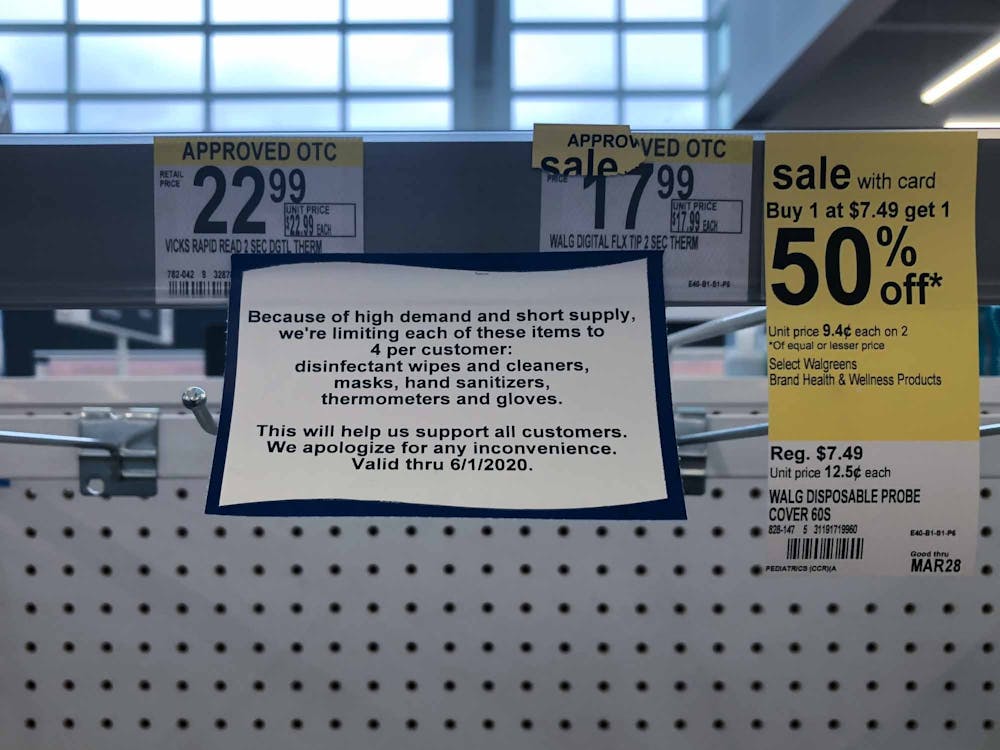As the number of COVID-19 cases grows in North Carolina, grocery stores and their customers are taking precautions to limit the spread of the virus.
While most people are being encouraged to stay home and practice social distancing, supermarkets are keeping their doors open to provide essential goods. Changing store hours, adding extra paid sick leave and suspending some in-store services are some of the safeguards these businesses have put in place to protect the health and safety of customers and employees.
“Especially in times of uncertainty, we believe everyone deserves to have access to quality food and essential medicine,” Danna Robinson, communication manager for Harris Teeter, said. “We want to ensure all our shoppers have access to in-demand products. We are working closely with our suppliers to replenish our inventories.”
The N.C. Department of Health and Human Services issued guidance for businesses to follow to prevent the spread of the virus and what to do if a patron is diagnosed with the virus after leaving their store. Some of the steps include quarantine, contacting the local health department and environmental cleaning.
Kristin Prelipp, the public information officer for the Orange County Health Department, said residents can also take precautions when going to grocery stores. She said one person per household should go to the store, use hand sanitizer after leaving the retail location, wash their hands when returning home and after unloading groceries and sanitize any debit or credit card used during transactions.
Additionally, Prelipp advised members in high-risk groups to send a friend or family member to the store and to have this person leave goods outside on the porch rather than entering the home.
Prelipp said there is no guidance on whether a business should temporarily close due to the coronavirus, but she said many are closing in the evenings for cleaning and disinfecting. Whole Foods Market, Harris Teeter and Trader Joe’s have all modified their business hours to provide employees with more time to restock their shelves and sanitize the stores.
Some stores have begun to provide a designated time for senior citizens to shop separately from the general public to help older adults who are at a higher risk for severe illness as a result of COVID-19.
Harris Teeter and Whole Foods have announced this hour would be for shoppers who are at least 60 years old. A statement from Whole Foods said seniors-only shopping would occur for one hour before opening to the general public, and Harris Teeter has designated senior shopping to be Mondays and Thursdays from 6 a.m. to 7 a.m.




